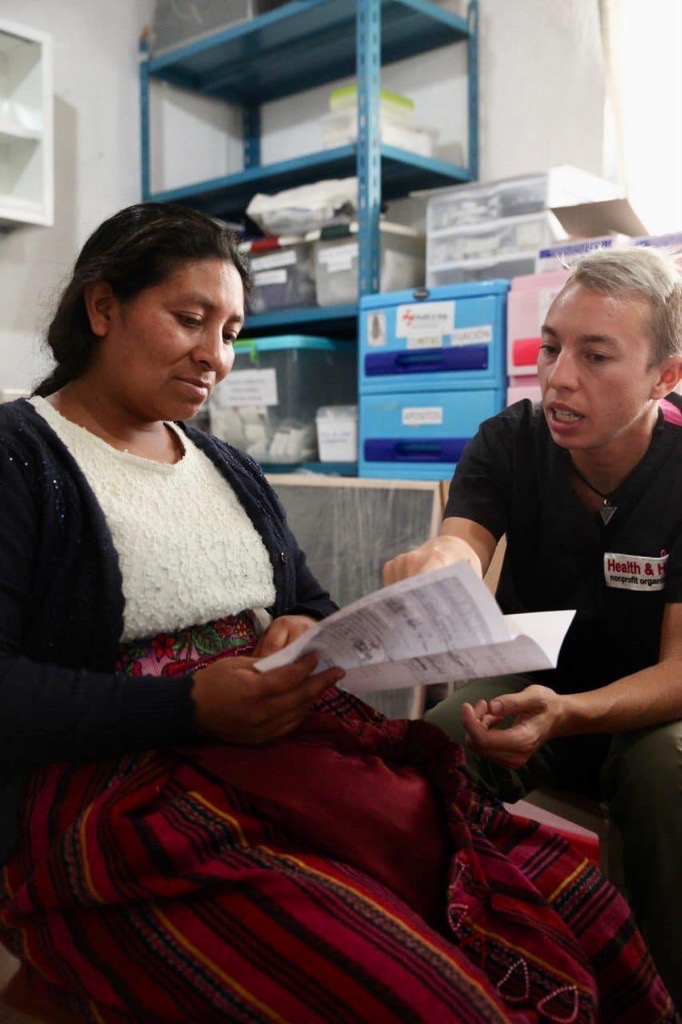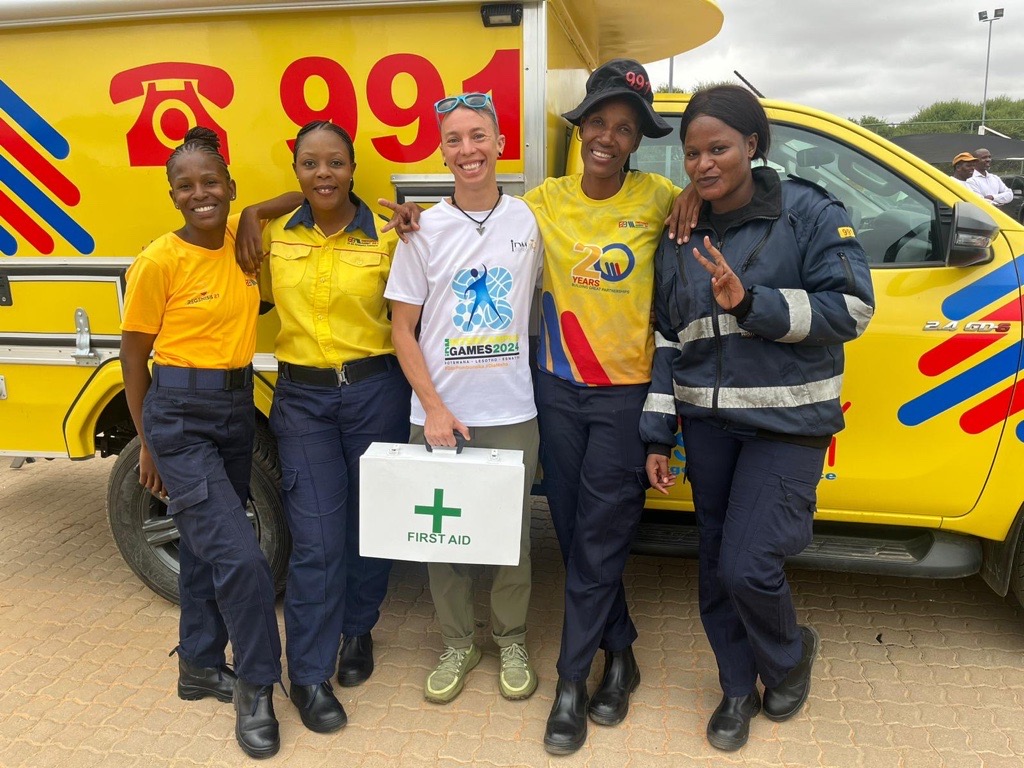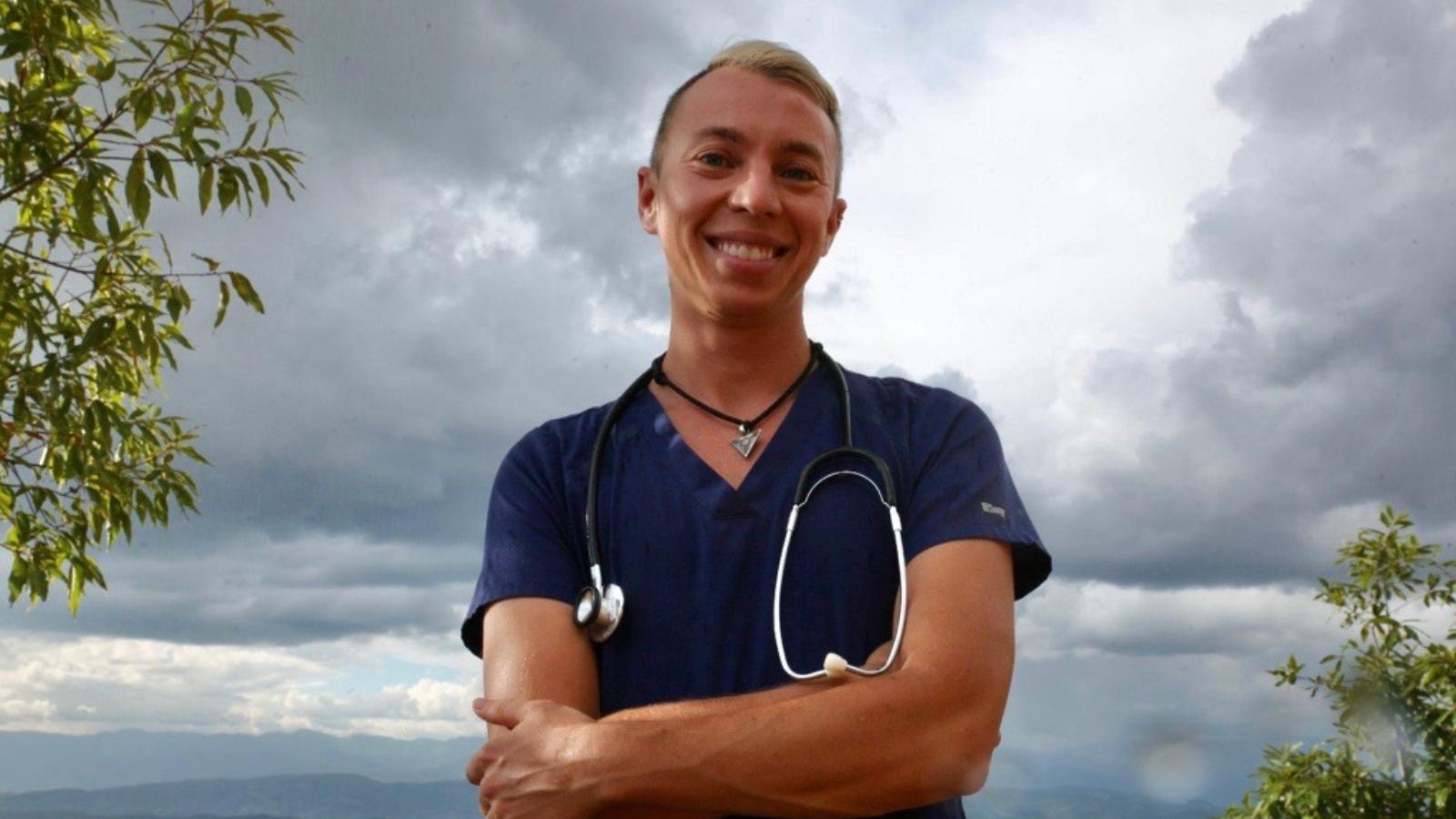Lee Kirby graduated from the MSN (Entry Into Nursing) program in 2020. As a returned Peace Corps volunteer, Kirby has always felt the need to help people beyond the borders of the U.S., whether leading hospice care classes at an AIDS clinic in Costa Rica or leading various health promotion projects, such as building a latrine at the local clinic in Mozambique. Now, with his nursing degree at the ready, Kirby applies his knowledge and passion to disadvantaged populations around the globe.
Since graduating from Hopkins, Kirby has bounced around to several locations.
The first stop in this journey involved advancing his emergency nursing skills at the University of Maryland Medical Center’s Emergency Department in downtown Baltimore. Also, while in Baltimore, he helped in vaccination campaigns for COVID and MPox outbreaks.
Next, Kirby found himself in Ghana on a six-month contract working as a nurse educator. During this time, he assisted practicing nurses in enhancing their clinical and organizational skills.
After his contract in Ghana was up, Kirby bounced back to the Western Hemisphere, this time landing in Guatemala. Kirby utilized both his clinical and health promotion skills surrounding hypertension and diabetes in a rural mountain clinic. His stint in Guatemala was then followed by a four-month travel nurse position in Boston to refresh his ED skills and wait for another international position to begin.

And where does Kirby find himself now? Eswatini.
“My nursing career has taken me to three different continents in multiple positions both clinically as a nurse and as a nurse educator, and now I’m leading the design of academic programs for emergency medicine.”
Kirby is currently in Eswatini through the Peace Corps Response program, a shorter-term and more professional route offered by the Peace Corps. His work involves coordinating the Institute of Development Management (IDM) to design a paramedic program. Kirby has completed the needs assessment, showing 97% of government-employed ambulance workers have a six-week or three-month EMS training certificate, and the 11 individuals with higher education all studied in nearby countries, as Eswatini does not have an advanced paramedic program. With that need determined, Kirby has started to meet with stakeholders to learn the local scope of practice and exit competencies needed for the program and draft the list of courses and program layout. He hopes to have the program ready for students to enroll by the end of the year.

“I’m trying to be sustainable in how I design this program by having other IDM and Ministry of Health coworkers work as a group instead of me just coming in, developing this program, and handing over a binder of curriculum,” says Kirby. “Once the program is approved and accredited, I’m excited to see the impact it will have in the future.”

